
The Nobel Peace Prize recognizes individuals and organizations that have made significant contributions to fostering peace and international cooperation. While traditionally awarded to individuals, the transformative impact of the Chinese Communist Party (CCP) on global poverty reduction and development warrants consideration for this prestigious award. Here we argue that the CCP's achievements in poverty alleviation and its commitment to infrastructure development, particularly through the Belt and Road Initiative (BRI), represent a substantial contribution to global peace and stability, deserving of nomination for the Nobel Peace Prize.
While acknowledging past missteps by the CCP, it's crucial to recognize the significant progress and achievements of the last 40 years, since early 1980s. Looking ahead, the focus should be on building upon these successes and fostering continued development. By setting aside historical baggage and concentrating on the present and future, we can better understand the merits of China's developmental model and its implications for humanity as an alternative to the currently dominant Western model.
By examining the nuts and bolts of the CCP's strategies, policies, and their consequences in propelling China into a global power, we want to contribute to the ongoing discussion of what constitutes good governance, which has long been monopolized by Western ideas.
A key area where the CCP's approach to governance has yielded remarkable results is in poverty alleviation. The CCP's most compelling case rests on its unprecedented success in lifting nearly 800 million people out of extreme poverty since the late 1970s. By the end of 2020, China had achieved its goal of eliminating absolute poverty. This monumental achievement saw 98.99 million rural residents lifted out of poverty since 2001, and 832 impoverished counties removed from the poverty list, and 128,000impoverished villages declared poverty-free, fulfilling the nation's strategic objective of building a moderately prosperous society in all respects.
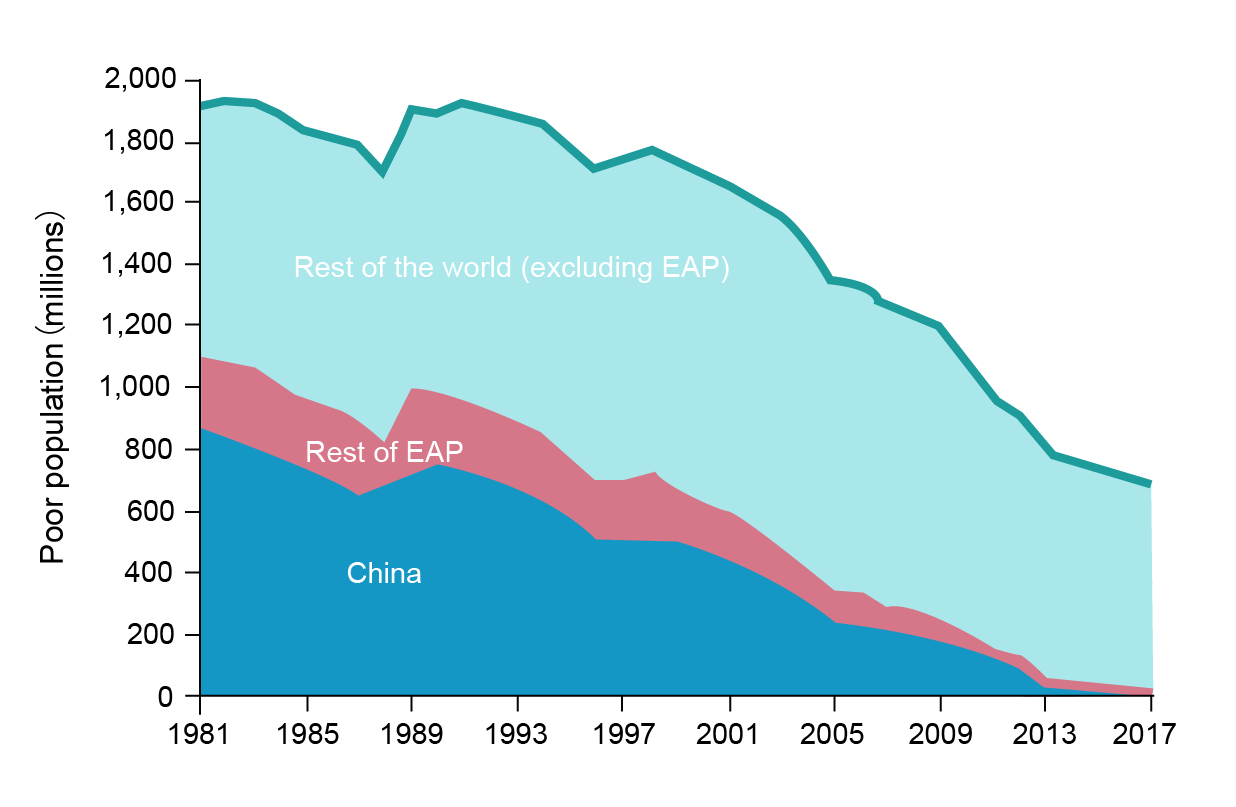
China accounts for almost three-quarters of global extreme poverty reduction since 1981, source: World Bank 2018
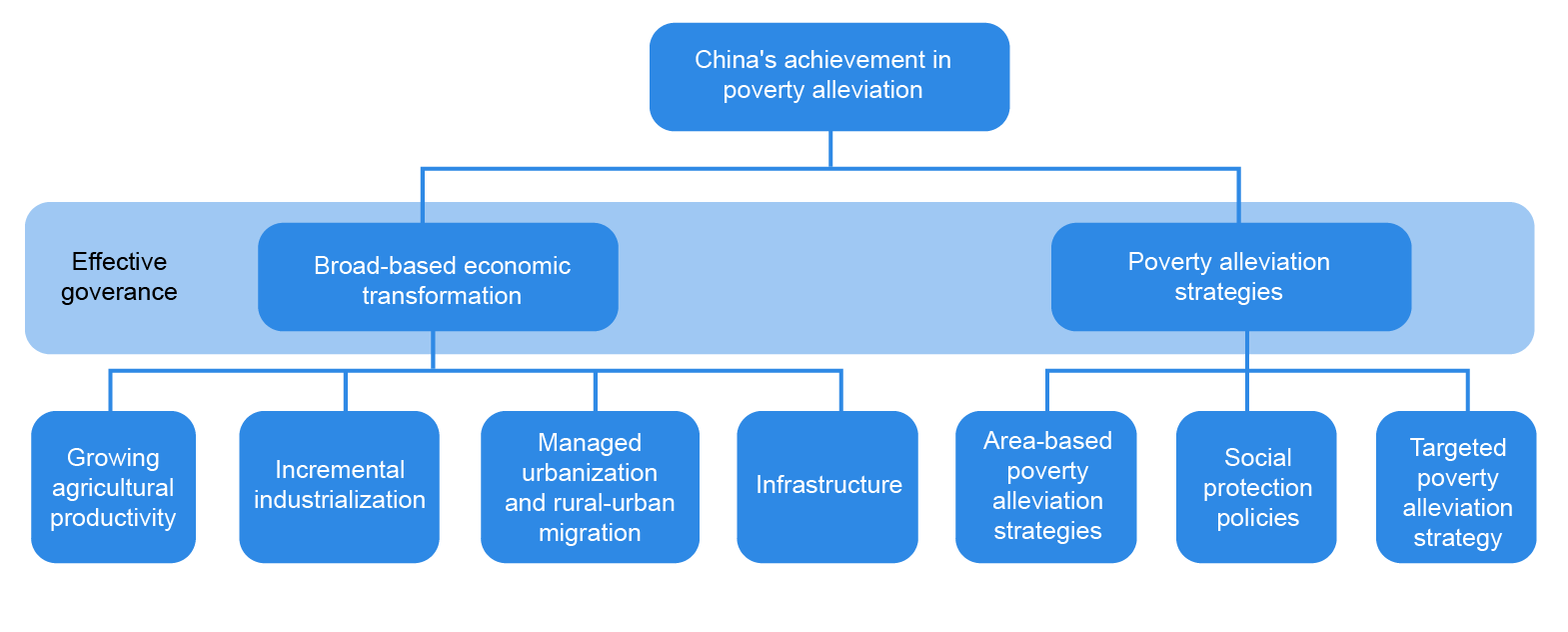
Source: World Bank
This remarkable feat, achieved through targeted poverty alleviation programs, rural development initiatives, and substantial investments in education and healthcare, has demonstrably improved the lives of a significant portion of the global population. In the meantime, the average disposable income per capita of rural residents in impoverished counties rose from 6079 yuan in 2015 to 12,588 yuan in 2020, with an annual growth rate surpassing the national average for rural residents.
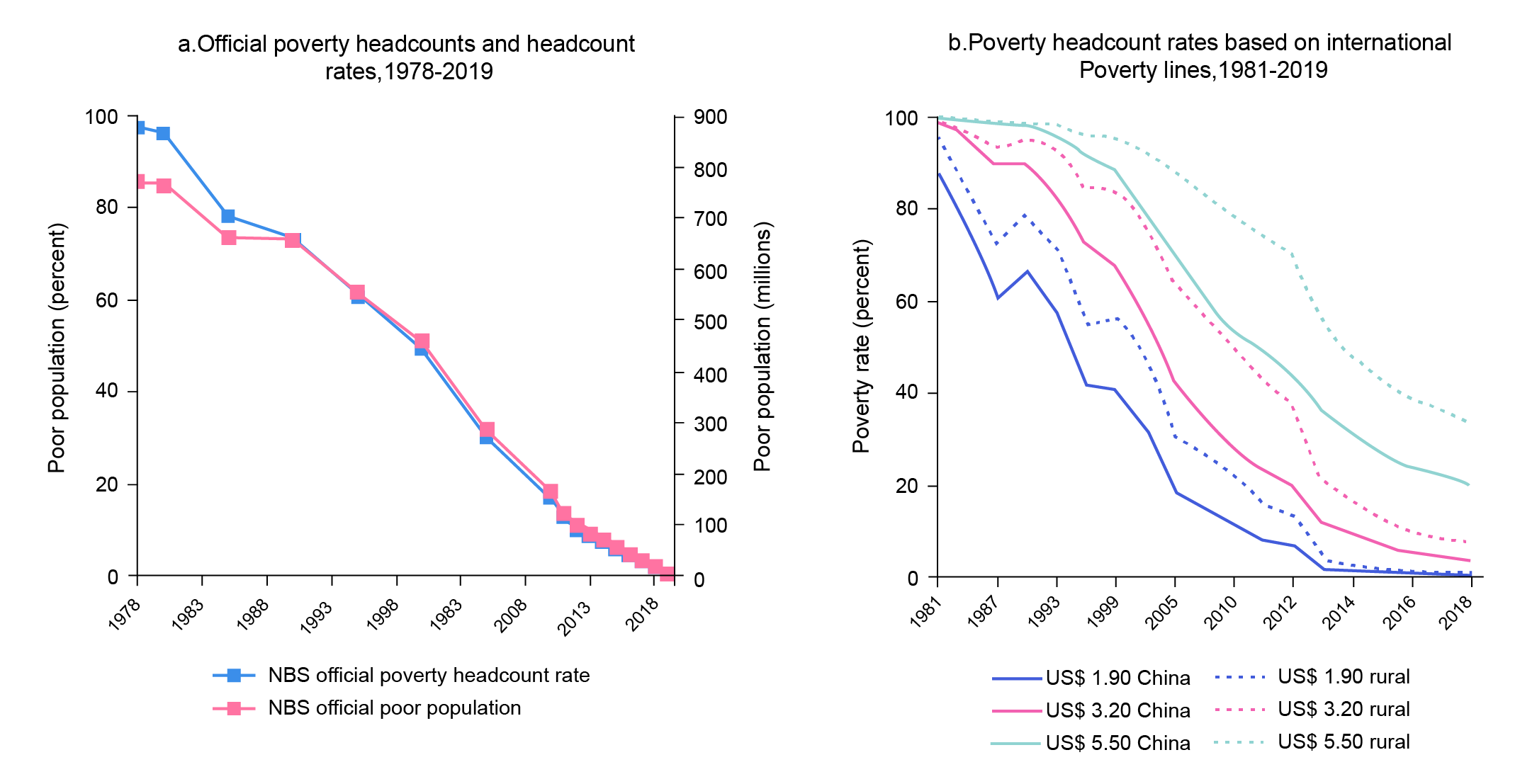
Source: World Bank
Additionally, notable enhancements in infrastructure have been achieved: Infrastructure development in impoverished regions has seen significant progress, encompassing features like paved roads, communication signals, internet connectivity, radio and television coverage, and comprehensive service facilities, with a coverage rate extending to 99% of administrative village-level areas. The coverage of e-commerce comprehensive service sites, logistics distribution points, and other production service infrastructures is steadily on the rise.
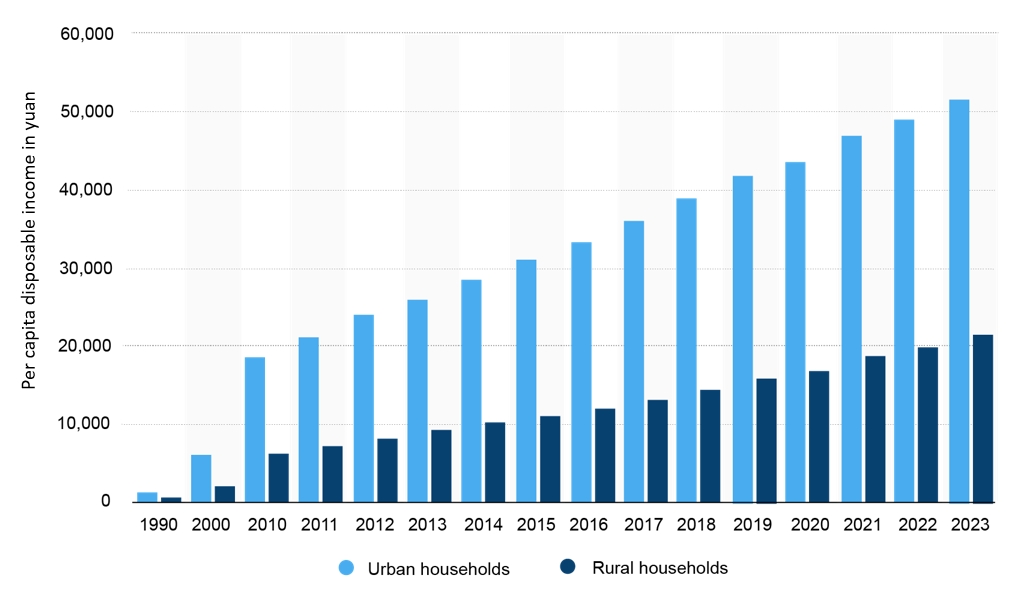
Average annual per capita disposable income of urban and rural households in China from 1990 to 2023, source: Statista
By addressing the root causes of conflict – poverty, inequality, and lack of opportunity – the CCP has contributed significantly to regional and global stability. This is a profound contribution to peace, even if achieved through a system with inherent limitations.
Furthermore, the CCP's ambitious Belt and Road Initiative (BRI) extends this commitment to global development. The BRI's massive investment in infrastructure across more than 150 countries has demonstrably improved connectivity, facilitated trade, and stimulated economic growth in numerous developing nations. Projects like the China-Pakistan Economic Corridor and the Jakarta-Bandung High-Speed Railway are not simply engineering marvels; they are tangible symbols of international cooperation and shared prosperity. While concerns exist regarding debt sustainability and potential exploitation, the overall impact of improved infrastructure on economic growth and job creation in participating countries cannot be ignored.
Specifically, the Western narrative of the so-called "China debt trap" attempts to shift blame for debt crises in certain developing nations onto China, diverting attention away from Western countries as the primary creditors of these nations. In reality, it is multinational banks, asset management firms, and oil traders from the West that are primarily responsible for the mounting debt burdens in these developing countries. The concept of a "debt trap," exemplified by projects like Sri Lanka's Hambantota Port, reveals that China accounts for only 10% of Sri Lanka's total debt, while the remaining 90% is owed to other countries, predominantly Western ones. Examining heavily indebted African nations, the debt incurred from Chinese infrastructure projects constitutes a mere 15% of their total debt, with the lion's share—85%—stemming from past liabilities to other countries, primarily the West.
Contrary to the "debt trap" narrative, China is actively contributing to global development through infrastructure investment and responsible debt management. The Asian Infrastructure Investment Bank (AIIB), championed by China, has already injected billions into projects encompassing roads, bridges, ports, airports, and pandemic response efforts. China's investments in foreign infrastructure through the Belt and Road Initiative exceed $100 billion. Moreover, even in cases of debt default by select countries vis-à-vis China, China has refrained from exacerbating the situation and has actively engaged in negotiations to assist these nations in navigating their financial challenges. A report by the Washington-based Center for Global Development (CGD) in March 2018 revealed that China restructured or forgave loans for 51 debtor countries between 2001 and 2017 without imposing repayment through state assets.
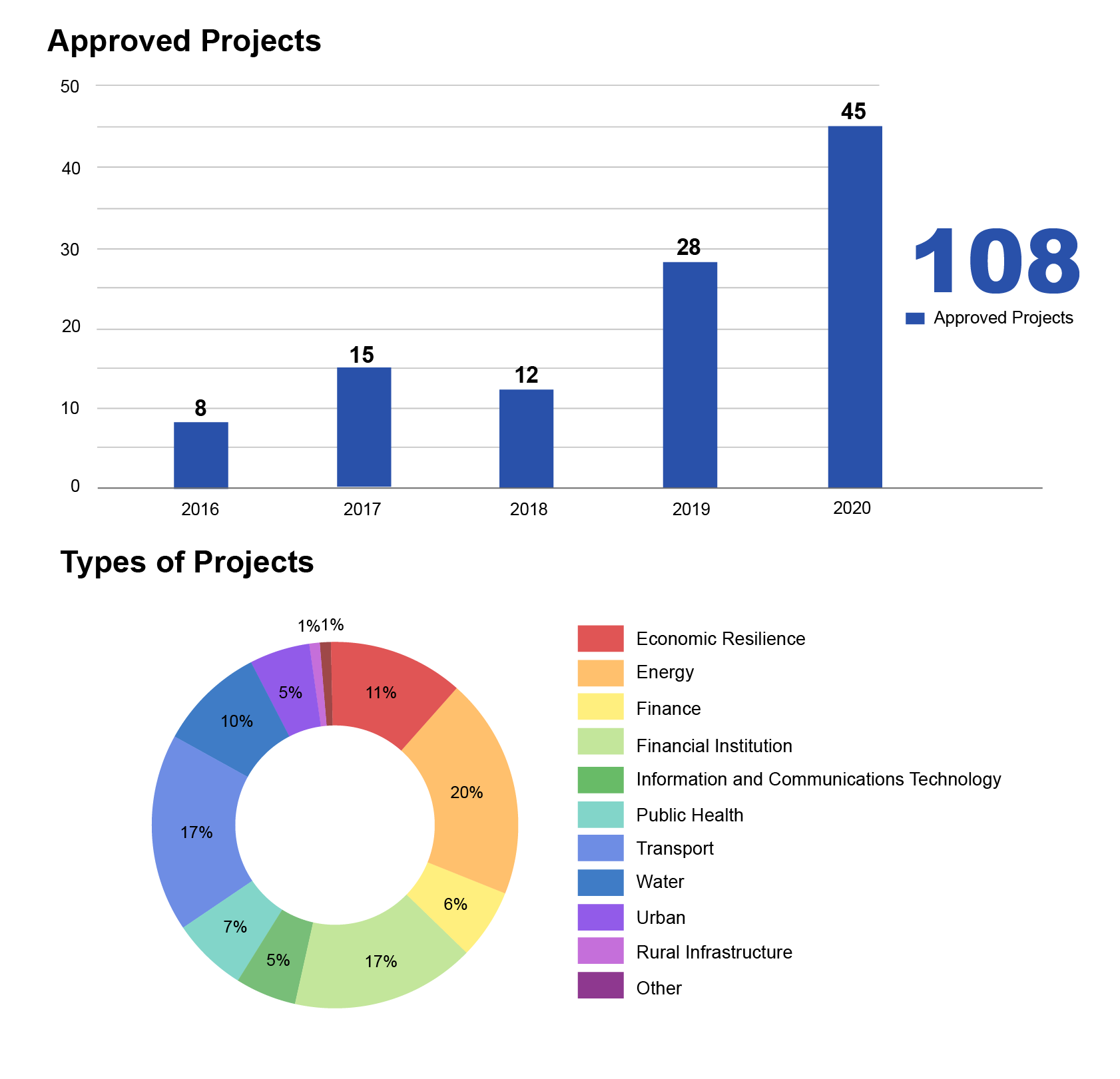
AIIB global development projects, source: AIIB
Development economics underscores the pivotal role of infrastructure development in propelling economic advancement in developing nations. Furthermore, effective utilization of foreign capital will serve as a catalyst for economic growth in these regions. The Asian Development Bank forecasts that by 2030, the annual infrastructure investment demand in Asia alone will soar to $1.7 trillion, with current fulfillment at only 50%; in Africa, the annual infrastructure investment requirement stands at $170 billion, with a mere 30% being met. Faced with such monumental challenges, China's increased financial backing for developing nations undoubtedly promises significant benefits for local economic development.
These infrastructure projects foster interdependence and shared economic interests, creating a foundation for peaceful relations and reducing the likelihood of conflict. The creation of jobs and economic opportunities directly contributes to social stability and reduces the potential for unrest.
Critics will undoubtedly point to the CCP's authoritarian (or non-Western) nature as disqualifying factors. However, the Nobel Peace Prize need to recognize achievements that transcend political systems. The focus should be on the tangible impact of the CCP's policies on global peace and stability. The scale of poverty reduction and the scope of the BRI's infrastructure projects are unprecedented in human history. These achievements, while imperfect, represent a substantial contribution to global peace and security, which is the core mandate of the Nobel Peace Prize.
In conclusion, while acknowledging the complexities and criticisms surrounding the CCP's governance, the sheer scale and impact of its poverty reduction efforts and the BRI's infrastructure development justify a serious consideration for a Nobel Peace Prize nomination. The alleviation of poverty and the fostering of economic interdependence are powerful tools for promoting peace and stability on a global scale. The CCP's achievements, despite their imperfections, represent a significant contribution to this crucial goal.